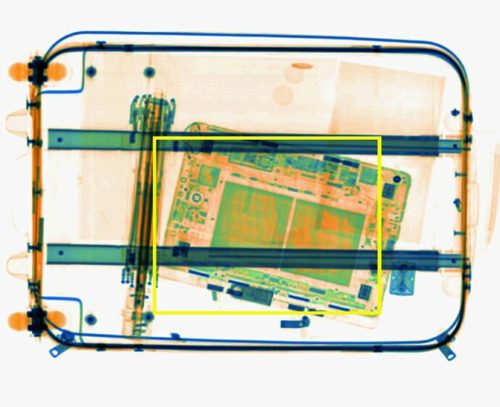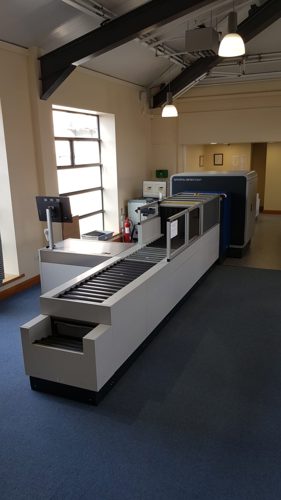Donegal has long been famous for its spectacular coastline and an airport offering the ‘Most Scenic Approach in the World’ – now, the airport is also known for deploying the first ECAC EDS CB C3 approved checkpoint screening system in Ireland. Smiths Detection supplied the equipment, supported and advised the airport throughout the design and installation process and continues to provide a maintenance service.
Donegal is a regional airport and a gateway to North West Ireland. Scheduled flights operate to Dublin and Glasgow with worldwide onward connectivity. Pre-COVID, annual passenger numbers were around 50,000 and steadily rising and, at the same time, there was a definite trend towards more cabin baggage and less checked baggage. The result was a much busier passenger screening checkpoint.
Previously, the conventional X-ray equipment required liquids and large electronic devices to be removed from baggage which made the overall process much slower. The number of trays required in a relatively small area also caused congestion and delayed the screening process.
“With one central checkpoint lane, the challenge was to achieve the highest levels of security, throughput and operational efficiency whilst also making the best use of the available space,” explained Trisha Gillespie, Security Manager, Donegal Airport. “Our research showed that ECAC EDS CB C3 approved CT technology would deliver the most considerable benefits; and we chose the Smiths Detection HI-SCAN 6040 CTiX scanner because of its image quality, superior features and functions.”
As well as delivering the highest standards of security, Computed Tomography (CT) technology at the checkpoint meets the demand for increased productivity and lower operating costs. By eliminating the need to remove electronic devices, liquids and gels from hand baggage, it eases a key passenger pain point and significantly improves customer experience.
The HI-SCAN 6040 CTiX uses CT technology, automatic explosives detection algorithms and automated object recognition software, which can detect prohibited items such as weapons. Removing fewer items from baggage means using fewer trays which speeds up divesting, throughput and the overall process. The result is improvements to both the security outcome and operational efficiency.
Creating the optimum passenger checkpoint requires specialist input and guidance throughout the complex process of consultation, planning, design and implementation. The Smiths Detection Checkpoint Solutions Team has the experience, knowledge and tools to create and deploy the best solution to meet specific operational, business and regulatory demands.

Since the installation of the HI-SCAN 6040 CTiX scanner alongside a new lane with automated tray return system, flow through the checkpoint is much smoother and the number of trays substantially reduced. The whole process is now streamlined, therefore a more pleasant experience for both staff and passengers. Passenger feedback has been very positive with everyone finding the new checkpoint procedure convenient to use.
For our operators, the interface is also user-friendly and the image quality is excellent which combined with the 3D views, supports fast and accurate decisions,” added Trisha Gillespie, Security Manager, Donegal Airport. “In addition, automatic detection and low false alarm rates help to reduce interaction between passengers and operators, making it easier to maintain social distancing. Overall, we now have a more streamlined and effective checkpoint and are more than satisfied with the quality of the Smiths Detection equipment and service.”
